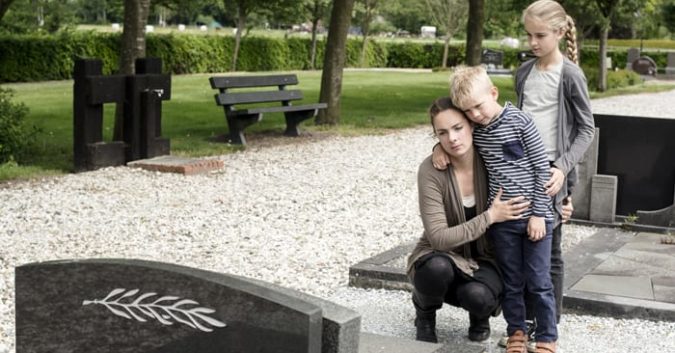Father’s Day is met with difficulty by many in the asbestos prevention community. For thousands of families impacted by asbestos, they are acutely aware of how important a father is to his family. They know how special he was in life and they treasure the time and memories they shared. His void is a presence in their life every day — but especially today.
Many of those whose lives have been taken by asbestos were first exposed to asbestos on the jobsite. Serious about providing for their family, these men arrived to work every day, never knowing that fibers in the air they breathed would someday take their lives. Certain occupations have a high risk of asbestos exposure, but many of those who are getting sick now were never warned.
Because of asbestos, too many people are spending Father’s Day without the man they thought would be around decades longer. Other families are only now finding out that their dad was exposed to asbestos. They are coping with the awful reality of a mesothelioma diagnosis, solemnly aware that this may be their last Father’s Day together.
Others who have already been exposed to asbestos will spend the holiday blissfully unaware that they are at risk of developing one of several awful diseases. After exposure, 20-50 years typically pass before symptoms of mesothelioma present themselves. The early symptoms are similar to the common cold, which sometimes makes mesothelioma hard to diagnose.
The risk after exposure is lifelong, and there is no cure for this cancer. There is no way to change the past, but for those whose lives have been affected by asbestos and mesothelioma, there is still a future to fight for.
A Widow’s Fight to Ban Asbestos
Alan Reinstein was a husband and a father, taken in the prime of his life by mesothelioma, a disease his family had never heard of. He underwent painful surgery to remove one of his lungs in order to buy more time with his loved ones. He maintained his dignity, but everyone knew the truth. Shortly, he would become someone they remembered, not someone they could be with.
His wife, Linda, learned everything about the disease that she could. Alan was diagnosed in 2003, and at that time, there were hardly any resources for Linda and other families of mesothelioma survivors. Beyond lawyers advocating for those who had been injured by asbestos, hardly anyone was raising awareness about the hidden risk that claimed Alan’s life.
For Alan’s family, the feelings of loss and isolation were overwhelming. Linda had gathered as much knowledge of the disease as she could, but what next? The knowledge could not save Alan, because as Linda discovered for the first time, prevention is the only cure for mesothelioma.
In the depth of Linda’s uncertainty, their daughter Emily suggested a trip to Washington, D.C. What did their elected officials know about the dangers of asbestos? And, what were they doing to prevent more Americans from being exposed?
In Alan’s name, wife and daughter traveled to the Capitol on what would become the start of an incredibly productive journey. They met with legislators, bringing a picture of Alan with them. They found out that there were a lot of people affected by asbestos, but there was not a community to bring them together. Thousands of people were dying without a voice.
Linda and Emily returned from that trip with a new sense of purpose. Along with Doug Larkin, whose father-in-law was taken by mesothelioma, Linda founded the Asbestos Disease Awareness Organization (ADAO).
This mission of ADAO is to help mesothelioma survivors and their families through education, advocacy and community. Now, when someone receives a mesothelioma diagnosis, they can find a dedicated network of survivors, physicians and researchers who are already in their corner, fighting every day.
The Alan Reinstein Ban Asbestos Now Act of 2019
The threat of asbestos is well understood. The death toll is in the millions. Yet because of successful lobbying efforts by the chlor-alkali industry, asbestos is still legal in the United States. Many uses of asbestos have been banned, but the toxic mineral is still imported onto American soil by the ton each year. For mesothelioma survivors and their families, this is insanity.
This year, Linda is looking to change that. The Alan Reinstein Ban Asbestos Now Act of 2019 (ARBAN) has been introduced in both the House and the Senate. On May 8th, the House held the first-ever legislative hearing on the issue. Linda was there, testifying on behalf of mesothelioma survivors and their families before Congress.
What makes ARBAN so important is that it is more than a ban. It tasks the government with studying and addressing the millions and millions of tons of asbestos that have been woven into buildings across the country. ARBAN is a true blueprint for an asbestos-free future. In a statement, Linda talked about what this bill means to her and her community:
“I’m honored to have the bill named after my late husband, Alan, but this is about the hundreds of thousands of Alans who have been diagnosed or died from preventable asbestos-caused diseases.”
Too many Americans are spending this Father’s Day bereft of a man taken by a preventable disease. Let’s make 2019 the last time this holiday is observed while asbestos is still legal and lethal in America.
Connect with ADAO and find out how you can help ban asbestos in America.
Learn more about the risks of asbestos exposure and the symptoms of mesothelioma.
